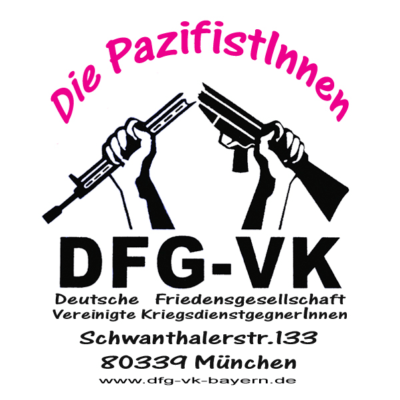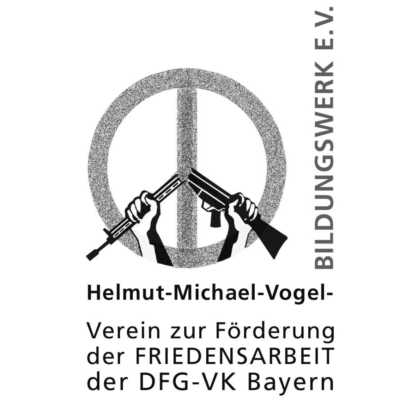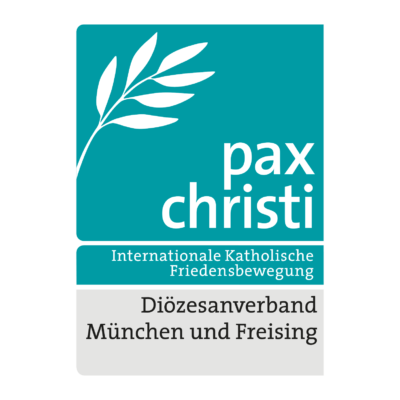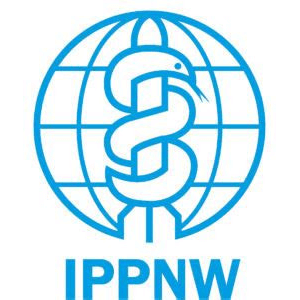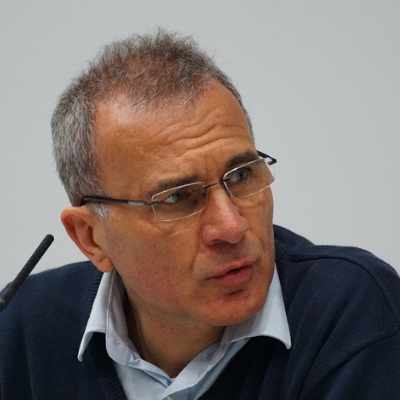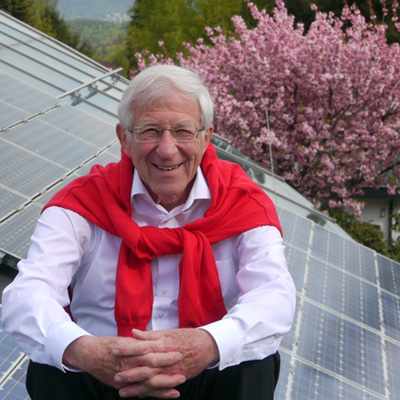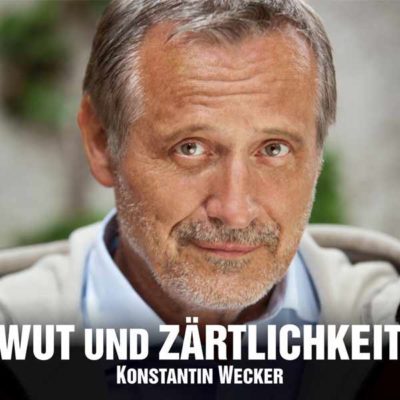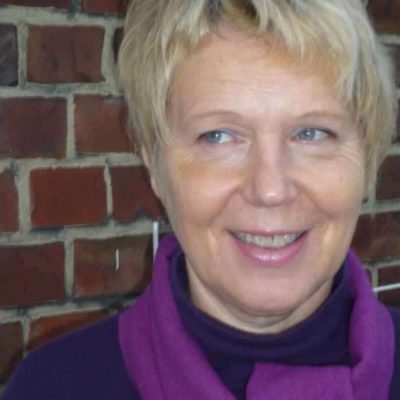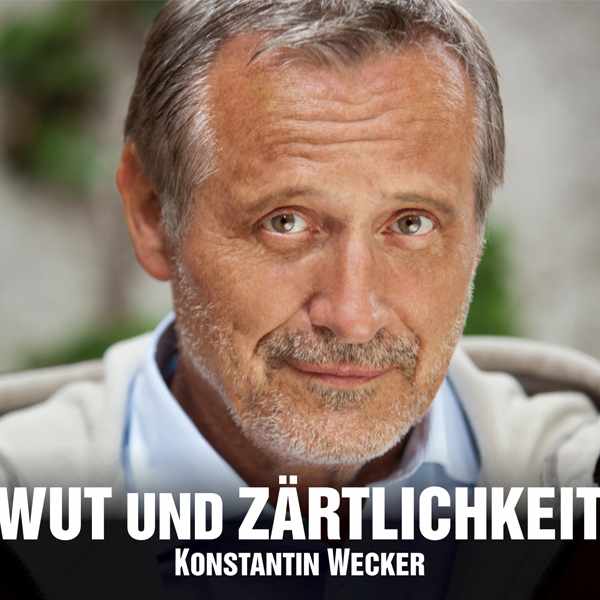Our positions
The Munich Peace Conference is the substantive alternative event to the Munich Security Conference.
An “International Security Conference” worthy of the name must, in our view, overcome military security thinking and focus on common security through reconciliation of interests and cooperation. The paradigm shift requires a fundamental shift from high military spending to funding civilian conflict and crisis management. The pursuit of superiority and profit maximization should be replaced by a new way of thinking: Orientation toward global justice, the common good for all people, and sustainability in the economy and in the use of resources.
Goals and Objectives of the Peace Conference:
* A key goal of the Peace Conference is to initiate thought processes that inspire a culture of peace.
* With concrete examples from different cultures, we want to show perspectives for a security oriented to the well-being of the people.
* We want to encourage people to get involved in political events.
* With the Peace Conference, we focus on addressing peace policy options. We see them as a contribution to the formation of public opinion alongside street actions, dialogue events and prayers for peace.
* Through our actions and the “International Munich Peace Conference”, we are committed to ensuring that people live together in peace and social justice and treat nature responsibly.
*) For the substantive contributions to the Peace Conferences, see “Archive”.
The Munich Peace Conference is the substantive alternative event to the Munich Security Conference.
Assessment of the Munich Security Conference
The Munich Security Conference was founded as a “defense conference” when so-called security policy was characterized by a clear front against the socialist states. Deterrence, military strength, and dead arming the enemy were the central concepts of military power politics. After the end of the “Cold War”, the Western industrialized nations – i.e. predominantly the NATO states – are primarily concerned with gaining global access to resources and securing trade routes and sales markets, including by military means. The Munich Security Conference plays an important role in the arrangements for this.
Their understanding of security is focused on dominance and maintaining power. The threatening gesture of high armament in the “Cold War” has turned into actual military interventions in strategically important regions, e.g. in Iraq and Afghanistan. With a high propaganda effort, these were declared to be “crisis areas” that threaten “our security” and are thus supposed to justify military operations. This military policy is not covered by the UN Charter. It costs the lives of countless people in war zones, causes impoverishment and radicalization, and devours enormous resources. These funds are lacking for civil conflict and crisis management and for strategies against man-made disasters.
A change of course is necessary – civilian action instead of military intervention
An “International Security Conference” worthy of the name must, in our view, overcome military security thinking and focus on common security through reconciliation of interests and cooperation. The paradigm shift requires a fundamental shift from high military spending to funding civilian conflict and crisis management. The pursuit of superiority and profit maximization should be replaced by a new way of thinking: Orientation toward global justice, the common good for all people, and sustainability in the economy and in the use of resources.
There are detailed concepts for civil conflict management in the social sphere, in domestic conflicts, and encouraging experiences at the international level. The UN, intergovernmental and nongovernmental organizations have already accomplished considerable work in this area through negotiations, mediation and observer missions. One of the most important instruments is the Civil Peace Service (ZFD), which works with the conflict parties on the ground to find solutions that are acceptable to all. The “International Munich Peace Conference” has been dealing with these new approaches since 2003 and shows international examples of success.*
From the federal government we expect:
* Ending the foreign deployments of the Bundeswehr
* Halt arms exports and stop the illegal arms trade.
* Reduction in arms spending and a significant increase in funding for civil conflict transformation.
* Introduction of a civil tax law: no tax coercion to co-finance military spending.
* Steps toward disarmament with the goal of general and complete disarmament.
* A strengthening of the institutions of common security such as the UN and OSCE.
MANIFEST Protection of human rights through prevention
Preamble
Protecting people and human rights and dealing with conflicts in a civil manner: Yes! – War No!
We – the individuals and groups supporting the paper – accept the responsibility of states as well as civil society to protect people from crimes such as genocide, displacement, crimes against humanity.
However, war is not a means to resolve conflicts or protect human rights.
The military interventions of the last decades have failed, measured against the given goals such as the enforcement of human rights, the establishment of democracy and the rule of law. They have worsened international relations, fomented conflict, and promoted extremism. Wildfires have resulted, plunging the affected regions into misery. Millions of people lose their homes and livelihoods.
What is needed is a fundamentally new approach to preventing war and protecting human rights, supported by governments, civil society, and international institutions.
A profound rethinking is necessary: Away from “war as a means of politics for a minority” to “peace as a basis of life for all”. Security and peace will only be achieved if the realization of human rights and sustainable development for people and the environment are pursued.
The answer to the spiral of violence is the vision of demilitarization of politics and general and complete disarmament.
The following topics identify relevant policy areas:
Content
The security and military policy of Germany and the EU must fully respect the UN Charter. The peace imperative of the German Basic Law must be the political guideline.
The UN and OSCE are fundamental forums for civil conflict management between states and should be fully accepted and used as such. Military actions without a mandate from the Security Council are in stark contradiction to this!
In the spirit of the UN Charter, international security is conceivable only as common security. The attempt to achieve a power position of superiority through armament is the basic evil that drives the arms spiral.
Common security, arms control and disarmament belong together. The termination of the ABM Treaty in 2001 (limiting the number of defensive missiles) by the USA effectively ended the era of arms control. The danger of nuclear war has grown again! A new arms race through quantitative and qualitative upgrades in offensive missiles and defense systems threatens.
The nuclear powers must implement their commitment to disarmament as set forth in the Nuclear Non-Proliferation Treaty and agree to a moratorium on the deployment of ABM systems. Global Zero – the prospect of a world without nuclear weapons – belongs back on the agenda in NATO, the EU and the UN.
The CFE (Conventional Stability in Europe) process aimed to achieve a significant reduction of armed forces in Europe. This is highly topical again today.
Binding norms and regulations to prevent cyber wars need to be drafted.
Instruments for prevention, crisis management and protection of human rights are inherent in the structures of the OSCE, but are insufficiently used. New tools for early detection and crisis management should be promoted and expanded.
The United Nations 2030 Agenda is an important international document for coherent and preventive action for social, environmental, sustainable and peaceful pathways to development. What is needed is the implementation of the agenda in government action with binding structures that are transparent for the participation of civil society. The necessary financial resources and coordination must be provided by the public sector.
Only if the idea of preventive civil conflict management is given priority over economic and power-political interests in politics will the chances of protecting people and their rights increase.
For this to happen, German policymakers would have to adopt a peace policy approach that sees crisis prevention as an important tool for the protection of human rights across all ministries.
Conflicts can be identified and dealt with at an early stage. This requires research into the causes of war and conflict, as well as research and training to develop and institutionalize holistic concepts of early warning. In this way, new concepts for preventive strategies can also be developed, politically discussed and implemented.
National instruments to support negotiated solutions must be expanded, politically upgraded and adequately funded.
In this context, women must be equally involved in peace negotiations and planning for reconstruction, as required by UN Resolution 1325.
In conventional politics, the concept of “responsibility to protect” is usually discussed in relation to “failed states” that are no longer capable of protecting their populations from crime. However, the failure of states is not only caused by unresolved internal conflicts, but also by the structural violence of a globalized economy. According to this, the “developing countries” must subordinate themselves to the interests of the transnational corporations and the rich North.
An example of this is the EU’s policy for subsidizing agricultural exports. Cheap agricultural exports to Africa and other countries in the South are destroying the livelihoods of people in local agriculture.
Business practices of multinational agribusinesses, such as land acquisition and monopolization of seeds, threaten the food sovereignty of developing countries.
The so-called free trade agreements such as TTIP, CETA and TISA primarily serve the powerful business corporations of the industrialized nations and will deepen poverty in the world, increasing the risk of mass migration to unprecedented levels.
Instead, priority should be given to promoting and developing regional delivery systems. To this end, ethically acceptable rules and regulations for world trade must be developed with the participation of civil society. Accordingly, foreign economic policy must be redesigned for greater equity in economic relations and placed in the context of war prevention and human rights protection.
German foreign trade policy and development cooperation must aim at the development of sustainable and independent industrial structures of the “developing countries”. This means evaluating the practices of transnational corporations from a peace policy perspective and limiting their power through national laws and international agreements.
Instead of an orientation toward militarily supported access to limited raw materials, a shift toward a sustainable and fair economy is needed.
The financial sector must provide simple financial services for all that contribute to the development of equitable and sustainable societies. Financial services should fundamentally support the real economy and be oriented toward the common good. The activities of internationally active financial capital must be regulated and supervised by an international forum. One important step is the introduction of a financial transaction tax.
German arms exports also contribute to the militarization of conflicts. Territorial, distributional and power conflicts fought out militarily destroy economic, state and social structures. Wars devour enormous resources, cost countless lives and lead to impoverishment and new conflicts. The production and purchase of weapons drains the budgets of vast sums of money that are not available for necessary tasks.
Responsibility to protect through prevention means: not approving any further arms exports, not granting any guarantees for the export of armaments, not selling decommissioned Bundeswehr weapons but scrapping them. The broad-based campaign “Aktion Aufschrei – Stoppt den Waffenhandel” (Action Outcry – Stop the Arms Trade) is calling for a fundamental ban on arms exports to be included in Article 26, Paragraph 2 of the German Basic Law.
In addition, Germany should take and support initiatives in the EU and in international organizations aimed at containing and preventing the international legal and illegal trade in weapons and armaments, e.g. in the UN Conference on the Limitation of Arms Trade.
What is needed is the development and social anchoring of a culture of peace. This requires above all the practice of individual renunciation of violence, of dialogue and communication behavior, and of nonviolent methods of civil disobedience.
Concepts for civil conflict management in the societal and domestic spheres are in place, and much experience has been gained. There is a need to test new and civilian ways to protect civilians and their human rights.
This includes civilian peacekeeping, which has been successfully implemented in a variety of contexts. Groups of trained nonviolent peace workers can intervene, observe, mediate, and defuse conflicts unarmed and independent of government interests. They can contribute to both early warning of crises and monitoring of agreements. Early warning systems (“monitoring”) can be networked, for example, through the OSCE’s Conflict Prevention Center in Vienna.
Civilian peacekeeping also lends itself as a complementary tool for the United Nations. Concepts must be developed and resources made available for this purpose.
International organizations such as the Nonviolent Peace Force or Peace Brigades International need more support from civil society so that they can act independently of state and economic interests. They can intervene at the societal level where states and intergovernmental institutions lack legitimacy (principle of sovereignty), credibility and instruments.
The Civil Peace Service (ZFD) demands a significant increase in funding for the budget title “Civil Peace Service” from the German government.
The more people become qualified in nonviolent conflict transformation, the better democratic processes and peaceful conflict transformation can be supported.
The introduction of a civil tax law also belongs in this context: no tax coercion to co-finance military spending.
At present, even a comprehensive and politically implemented concept of the responsibility to protect cannot rule out the possibility of armed conflicts in which genocide or serious crimes are threatened or take place. Situations are conceivable in which political and civil means have failed or are no longer applied, state structures are not in place, and criminal groups or governments commit crimes against the population.
A concept for neutral security forces under UN command, oriented to international law and police tasks, should be elaborated. These security forces are to be used in cases of imminent genocide and crimes against humanity – exclusively – to protect the people directly affected. The construction of such a police concept must exclude the use of national formations for national or imperial objectives as well as for acts of war: Through a neutral command, through deployment exclusively by decision of the Security Council or the General Assembly of the UN, through multinational composition of the units, through binding orientation to international and human law, through appropriate training, logistics and arming, and through appropriate definition of deployment criteria and guidelines..
Security forces can intervene with a specific mission in specific crisis or threat situations. They have no other police duties to perform. They are defensive, lightly armed and oriented towards the protection of vulnerable people and, in line with police missions, are intended to prevent crime. General civil legal norms apply to their actions, not martial or special rights.
The experiences of neutral states such as Austria or Sweden with blue-helmet missions can be evaluated and incorporated here. Retraining of Bundeswehr soldiers for these tasks is to be promoted.
The development of such a police concept is a challenge for civil society and political parties; the peace movement should also play a critical and constructive role here. The concept is intended to remove the legitimacy for NATO and national army interventions and to address the concerns of many people who believe that armed protection of human life is necessary in some situations.
Such a facility should have the status of an evolving interim solution. Demilitarization and disarmament, the development of civil instruments and the implementation of preventive measures should make the use of these (armed) security forces superfluous!
This manifesto emerged from the context of the International Munich Peace Conference, which has been presenting peace policy perspectives and concepts for action for years.
The manifesto takes up political, civil and non-violent concepts for conflict management and the protection of human rights. It bundles proposals and concepts from the peace movement and various NGOs. It was presented and discussed for the first time in 2016 at an expert hearing held as part of the Munich Peace Conference.
Suggestions and objections made there were taken into account in the above version.
The staff in the organizing team of the Munich Peace Conference disseminate this manifesto,
– to offer it as an argumentation aid to people interested in peace and peace movements,
– in order to present it to the candidates for the German Bundestag as peace policy election touchstones,
– to be taken up, disseminated and further developed by the organizations of the peace movement,
– to make it available as material for political organizations, educational and cultural institutions.
This manifesto emerged from the context of the International Munich Peace Conference, which has been presenting peace policy perspectives and concepts for action for years.
The manifesto takes up political, civil and non-violent concepts for conflict management and the protection of human rights. It bundles proposals and concepts from the peace movement and various NGOs. It was presented and discussed for the first time in 2016 at an expert hearing held as part of the Munich Peace Conference.
Suggestions and objections made there were taken into account in the above version.
The staff in the organizing team of the Munich Peace Conference disseminate this manifesto,
– to offer it as an argumentation aid to people interested in peace and peace movements,
– in order to present it to the candidates for the German Bundestag as peace policy election touchstones,
– to be taken up, disseminated and further developed by the organizations of the peace movement,
– to make it available as material for political organizations, educational and cultural institutions.
On 13.2. In 2016, the listed experts presented, critically commented on and supplemented the individual points of the following manifesto. Criticism and suggestions have been incorporated into the above text version.
Participants of the hearing:
Support group
Honorary Curate
Clemens Ronnefeldt
Dr. Angelika Claußen
Franz Alt
Constantine Wecker
Hanne-Margret Birckenbach
Joachim Bauer
Hans-Christof von Sponeck
Klaus Hahnzog
We remember our honorary curate
Hans-Peter Dürr
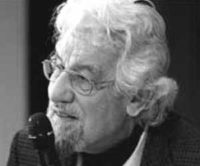
Supporters
Many thanks

Financially, we are supported by the member organizations of the Trägerkreis as well as the organizations mentioned here and many private individuals.
Donation account HMV-Bildungswerk e.V.
GLS- Bank IBAN: DE37 4306 0967 8217 1208 00
Keyword “Peace Conference
We will gladly issue you a donation receipt if you provide us with your address. Many thanks. They make the Munich Peace Conference possible.
Supporting Peace Organizations
Please find the supporting peace organisations HERE
Bertha-von-Suttner Foundation of the DFG-VK
Rosa Luxemburg Foundation

Other organizations and initiatives
attac Würzburg
VVN-BdA Kreisverein München
Augsburg Peace Initiative
DFG-VK Ingolstadt
Peace Initiative Bad Tölz Wolfratshausen
Private persons
Clemens Ronnefeldt
https://www.versoehnungsbund.de/aktiv/friedensreferat
https://www.transparenztv.com/friedensfragen-clemens-ronnefeldt/
https://versoehnungsbund.de/
Source: Archive Clemens Ronnefeldt
Dr. Angelika Claußen
http://www.ippnw.de/der-verein/vorstand/dr-angelika-claussen.html
Franz Alt
From 1972 – 1992 he was head and presenter of the political magazine “Report”. From 1992 to 2003, he headed the future editorial department ZEITSPRUNG at SWR, since 1997 the magazine QUERDENKER and from 2000 the magazine GRENZENLOS on 3sat. Prizes and awards: Adolf Grimme Award, Golden Camera, BAMBI, German + European Solar Award, German Environmental Award. Economy, Innovation Award and German Speakers “Hall Of Fame” (Speaker of the Year 2011), Most Extraordinary Speaker 2011 (Speaker Agency “5-Star Team”), Utopia Award 2012 and GREEN BRAND Germany 2013
Dr. Franz Alt lectures worldwide and writes guest commentaries and background reports for newspapers and magazines. He has received numerous awards for his commitment.
His books have been translated into 16 languages and have reached a circulation of over three million copies. On his website “Sonnenseite” you will find current, commented news about solar energy, environmental protection, economy and current world politics.
Every Sunday there is a free NEWSletter.
Constantine Wecker
Every peace initiative is important, and in my native city of Munich I particularly welcome a peace conference.
Georg Heym, perhaps the most important lyricist of early literary expressionism, foresaw the horror of World War I with harrowing linguistic imagery in 1911, a year before his untimely death – at just 24 years of age. I was strongly influenced by Georg Heym’s poetry at the tender age of 14, and I took the liberty of continuing to write and set his brilliant poem “The War” to music in order to bring it into our time. It states:
And again you hear imperious warriors shouting,
from the darknesses their reflection threatens.
Again, reason rolls dully into violence,
the brain is dead. The heart is cold.
Countless bodies are already stretched in the reeds,
covered in white by death’s strong birds.
Pale children plead with us:
Put an end to the madness someday.
Sometime? No now. We must see,
how we resist the forces.
Because otherwise it is called again one day then:
Look at these dull citizens.
Twice the great war came with all its might.
And they did not wake up for the third time.
There will be wars as long as there is still a man who earns money from them, wrote Bertolt Brecht.
And it is earned in this country, at the murder and killing. The corks of the champagne bottles have been popping at Heckler&Koch for some time now.
At the beginning of 2014, Economics Minister and SPD leader Sigmar Gabriel had still declared it a “disgrace” that Germany was one of the biggest arms exporters: “If you give weapons to the wrong regions, it can become a business with death.” Nothing but lip service. According to the 2015 yearbook of the respected international peace research institute SIPRI in Stockholm, Germany ranks fourth among the world’s largest arms suppliers – after the U.S., Russia and China.
We have to be on our guard.
Solidarity greetings Konstantin Wecker
Hanne-Margret Birckenbach
https://www.mediatoren-team-nord.de/%C3%BCber-uns-1/dr-hanne-m-birckenbach/
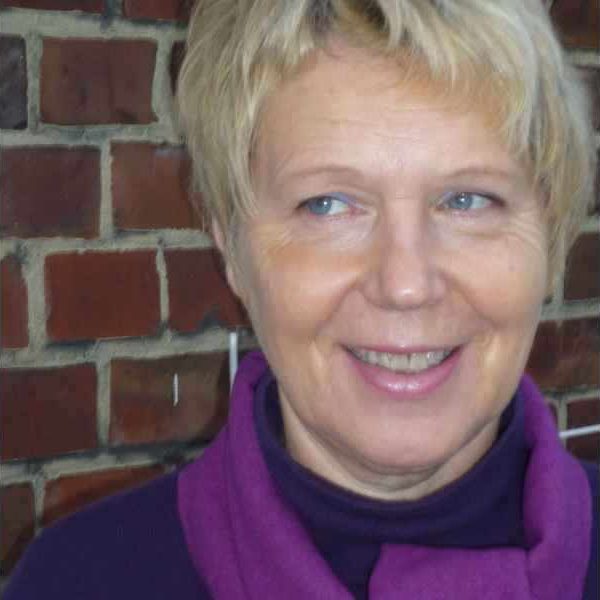
Professor of Peace and Conflict Studies, Giessen i-R.
Born 1948; initially studied German and philosophy in Tübingen, then sociology with minors in political science, education and social psychology in Frankfurt/Main. Diploma in Sociology. Doctorate in political science at the Free University of Berlin. Habilitation at the Faculty of Sociology of the University of Bielefeld since October 2001 Institute of Political Science of the University of Giessen, 2001 to 2008 Jean Monnet Chair for “European Governance, European Political Integration, Integration and Comparative Studies of the Subnational Level, Political Sociology, Participation and Democratic Practices in Europe”, 2008 to 2010 Professorship for International Integration with a focus on Eastern Europe, since 2010 Professorship Peace and Conflict Studies.
Fields of activity:
- Peace and Conflict Research (FuK)
- Conflict analysis and conflict prevention
- European and International Integration
- Relations between EU and Russia
- Transformation and Conflict Prevention in Eastern Europe
- Human rights and minority policy
Joachim Bauer

Senior physician of the Dept. Psychosomatic Medicine.
He taught as a university professor at the Albert Ludwigs University in Freiburg.
2017 emeritus
Author of: “Prinzip Menschlichkeit” and “Schmerzgrenze”.
Hans-Christof von Sponeck
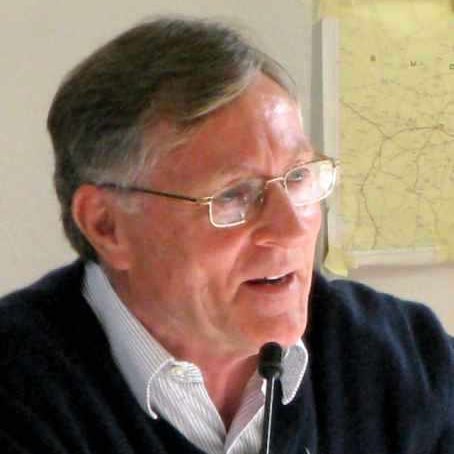
former UN diplomat, former UN Coordinator for Iraq
and Assistant Secretary General
Book author, Müllheim in Baden
Klaus Hahnzog
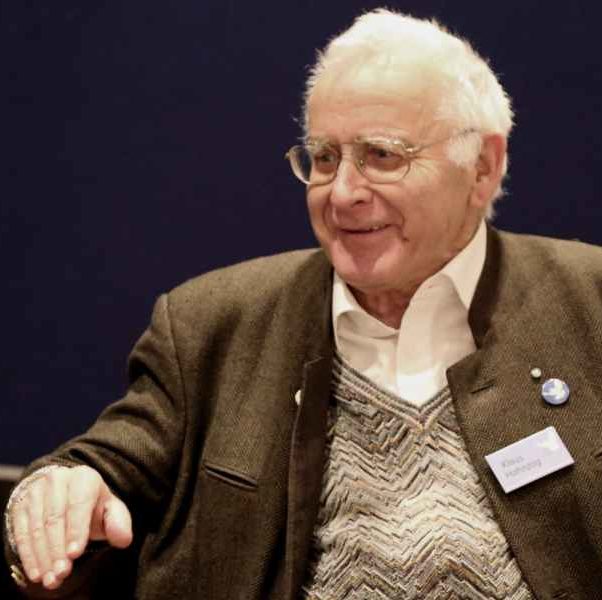
Former member of the state parliament and
non-professional member of the Bavarian Constitutional Court, Munich
The need to get involved in peace work was instilled in me from childhood, so to speak: as a 6-year-old in Berlin, the nights in the air-raid shelter, then the empty school desk next to me – one of the first bomb victims. Then to relatives in the Palatinate, from the frying pan into the fire: low-flying planes at the Westwall picking ears of corn or stubbing potatoes. That then also shaped me in politics. In our current refugee situation: How many are fleeing murderous conflicts in which weapons manufactured in Germany, the world’s third largest arms exporter, also play a role?
Hans-Peter Dürr


